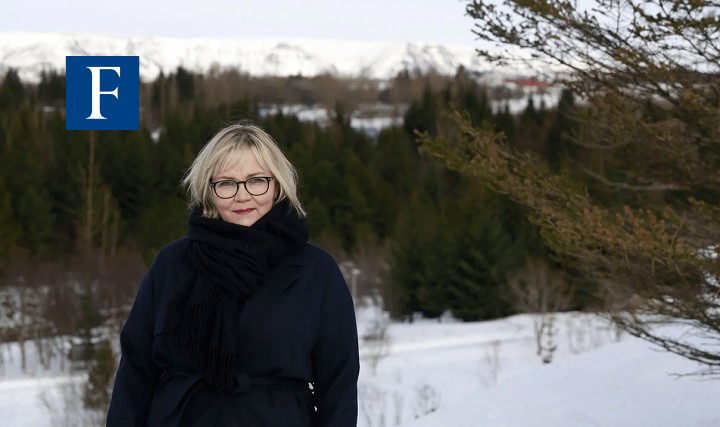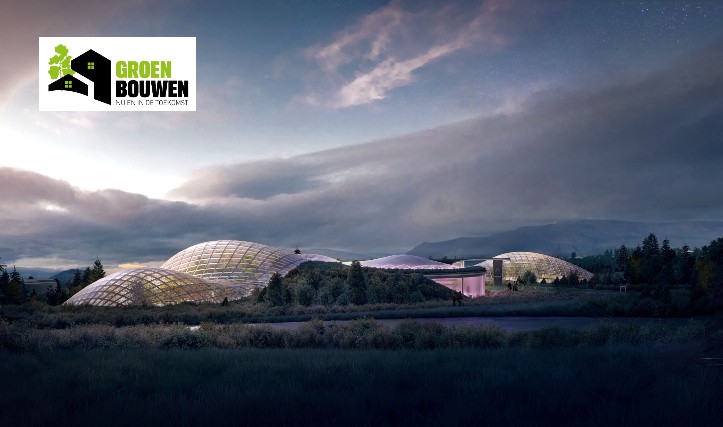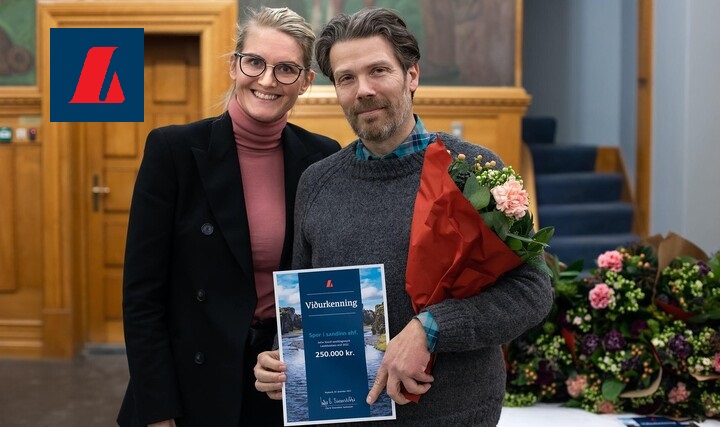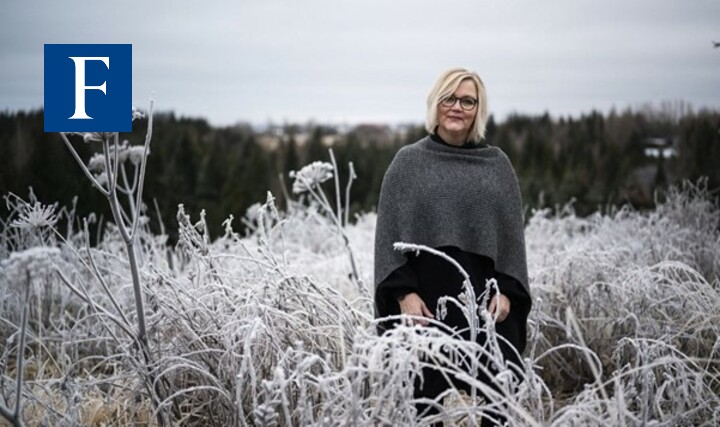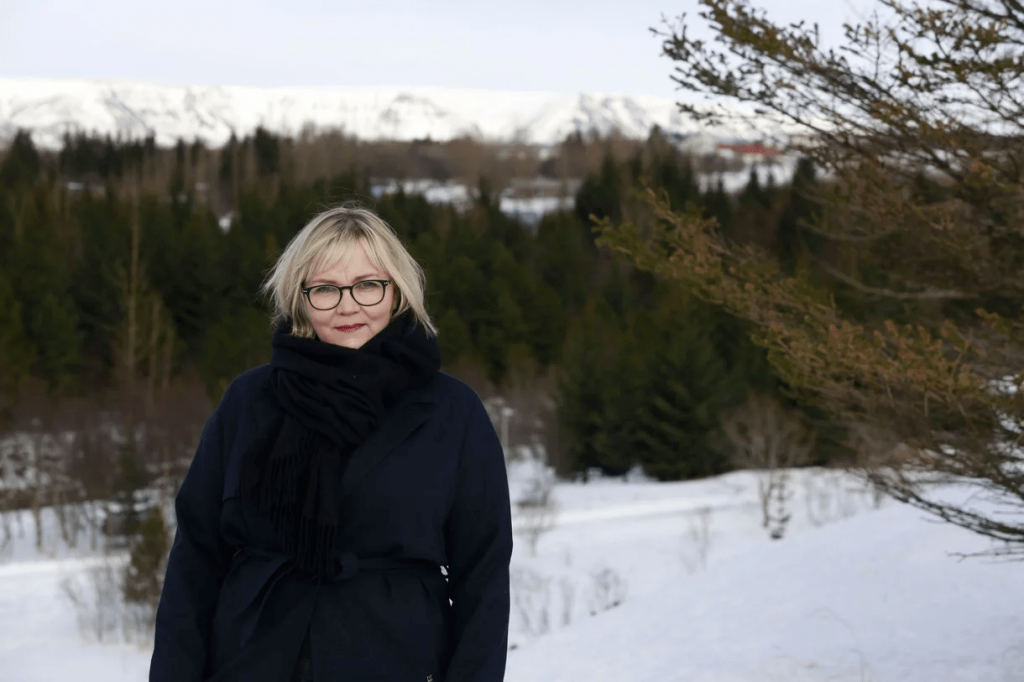
Hjördís has worked for around five years on the preparation for the ALDIN Biodome biophilic garden, which was approved to be built at Langagróf in the southern outskirts of Elliðaárdalur. At last it seems that the end of the project, which has been the source of a great deal of struggle, is coming into view.
But who is this ambitious woman who has fought for building a covered garden in town with the goal that food can be cultivated in an environment full of life, where residents can find both physical and mental nourishment?
“I grew up in the countryside, more specifically at Kastalabrekka in Ásahreppur, and growing up in the countryside had a big effect on how I ended up. I later learned food science and worked in quality control in the food industry for around a decade. My interest then started to focus increasingly on the interplay between people and the environment and how the environment has an impact on how we feel.”
Hjördís decided to follow up with education in environmental planning at the Agricultural University of Iceland in Hvanneyri and says that it’s expanded her viewpoint in many regards. “I learned more about myself, but at this time I also went through a difficult divorce.” After graduating, she continued in a masters program in landscape architecture and urban planning at Wageningen University in eastern Holland.
“I learned more about myself, but at this time I also went through a difficult divorce.“
In A Masters Programme Overseas, Single With Four Children
Hjördís’s children were then 5, 7, 13 and 16 years old and she admits that it was a challenge to start over, single parent with young children, but it had helped to not overthink it at that point in time.
“There was a certain freedom that came with getting away. It was a very difficult divorce witch impacted us all and thus it was good to separate completely from that environment. Things went very well out of the country and the course helped me to maintain focus, as I was piecing together numerous things and had a lot of tasks on my hands.”
“The children played football and on the weekends I was driving them to games in other towns. Between these times the car was unused and one would take all trips by bicycle,” Hjördís recalled, noting that she got to know her surroundings in an entirely different way when not driving between locations.
Collapsed Over Uncollected Trash
Hjördís says that the children had taken well to the new location and they needed to learn the language in a short period of time, so they went to an elementary school which specialized in teaching bilingual children with diverse cultural backgrounds. The Dutch treated the family well, but at times the burden was naturally significant.
“I remember a moment where I had a huge amount to do, alongside considerations of integrating into a new society. It was trash day which was once per week, and one was supposed to take sorted bins to the curb. I had been taking care with that – each type of trash for its trash day. When I came home from school my bin was the only one uncollected. I just collapsed and started crying,” Hjördís recalls, laughing. “It didn’t take anything more at that point in time.”
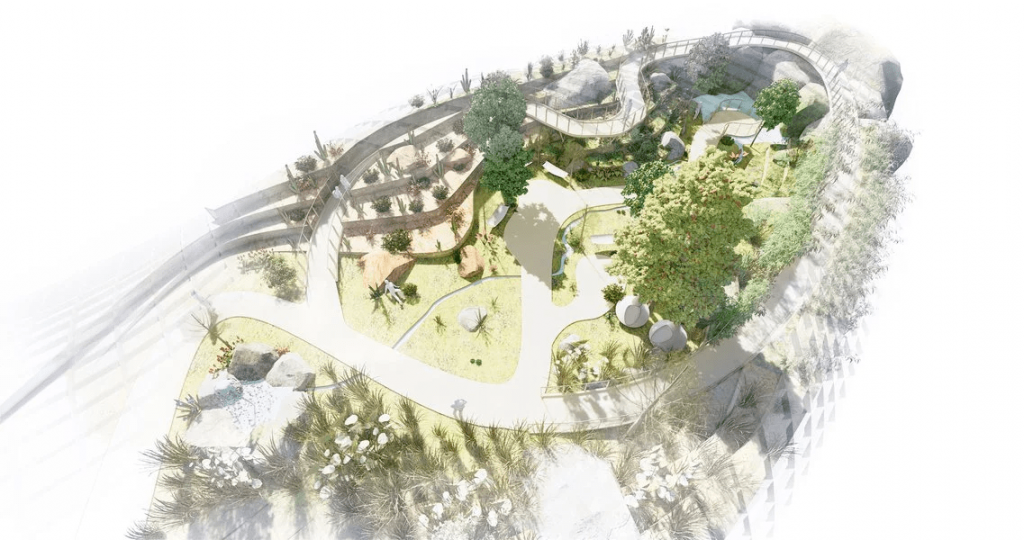
The Idea Grew From A Course
Hjördís says that one course in her studies had a particular formative effect on her. “We were given, as a group, an island which we were supposed to plan out for maximal utilization of energy and material, by means of configuring energy sources and energy consumption side by side and thus to close all cycles. It was an incredibly interesting project in the spirit of a closed-cycle economic system. Towards that end I did a research project on urban farming in Detroit and Rotterdam.
At this time there were conferences about whether cities could sustain themselves, produce their own food for residents and thus promote greater sustainability. This raised a great deal of interest to me, and not least the land use ethics which were emphasized. When I mapped out this path, the conclusions showed that the net effects on society were greatly positive. After this, I couldn’t stop thinking about how this could suit Icelanders. When a person lives overseas and sees Iceland from a distance, they learn a lot about their own land no less than about themselves – its challenges and opportunities.”
“When a person lives overseas and sees Iceland from a distance, they learn a lot about their own land no less than about themselves – its challenges and opportunities.”
The Experience Which A Relative Had An Effect On
The idea of a city garden evolved in Hjördís’s mind and she sought to take part in the Startup Reykjavík business accelerator in 2015 and was confirmed as a participant. This got the ball rolling.
According to the ALDIN Biodome website, the plan is to off offer a place where it’s possible to spend time in contemplation, learning, buy fresh food straight from the garden, spend time at a café, and more. The idea is that people buy membership in the garden, and Hjördís promises a modest price. “Membership should cost about ten times less than membership at a gym. I envision that this could be a place where, for example, older people can go for a walk indoors on beautiful paths when they would perhaps not trust themselves outside in the winter.”
Hjördís also points out that anxiety is constantly becoming more common among young people and that it’s her goal that the garden would be an uplifting and calming place. “These five years from when the idea caught fire, I’ve at the same time been the relative of an individual with an addiction- and mental health disorder and it’s had a major impact on the development of ALDIN Biodome and my desire to work towards the well-being of people.”
“These five years from when the idea caught fire, I’ve at the same time been the relative of an individual with a addiction- and mental health disorder and it’s had a major impact on the development of ALDIN Biodome and my desire to work towards the well-being of people.”
Strong Standards For Sustainability
I was so lucky that there was an article written about the project in 2017, after I got an award from the International Association – The Global Woman Inventors and Innovators Network. There, ALDIN Biodome received awards for Exceptional Innovation and Social Capacity Building, and that opened the doors to an international design team. These people have done similar things before; they have passion for the project and it’s so truly giving to work with such people.
Hjördís says that the project fits the sustainability goals of the United Nations exceedingly well. “Our design team has experience with similar projects and we’re developing everything based on strong standards for sustainability and health-promoting structures. This will ensure that we’re doing well in most fields, both in development and subsequently in operation.”
Criticism About The Development
The idea has encountered varying levels of understanding and certain groups have expressed concerns that details of the project, such as possible light pollution and the proximity of the construction to Elliðaár. “I view this as a natural element, which is anticipated in the permitting process, and I’ve listened very close to the criticism; the design team has reacted to it such that in many ways it’s improved the project.”
“With a longer-term perspective I believe that most people will be able to consider themselves some kind of winner. The building will be outside of the protected area of Elliðaárdalur and should not have any effect on the river. The project is in its nature built around self-sustainability goals in all regards, so the harming of the environment would be in clear opposition to its objectives. We plan to improve the environment – in all regards. We love the valley and want to support it and improve it.”
Hjördís says that light pollution will not be a problem and that the cultivation will be to a large extent underground. “High-tech cultivation will be under a sod roof and thus light from it will not bother anyone.”
“I view this as a natural element, which is anticipated in the planning process, and I’ve listened very close to the criticism; the design team has reacted to it such that in many ways it’s improved the project.”
The Opposition Has Had An Impact
Hjördís says that the slow motion of the government can often be a hindrance to innovators and that the opposition during this time had taken off. “This has often been difficult and I’ve gotten totally disappointed, but it helps to have good coworkers, family and friends which act like a compass and point me in the right direction.”
“I admit that last summer I ran into a wall and my energy was basically gone. I needed to get help and took well into the fall to catch up.” Hjördís needed to slow down the pace and, for example, stop running and go instead for long walks outside. She sought out assistance from both doctors and psychiatrists, and laughs that they never found anything negative in the blood tests.
“It’s so funny how we’re always in this materially but then it’s perhaps the spirit that’s making the body tired. The spirit needs so much support in this modern world and it’s this that ALDIN Biodome is doing – nursing the soul. I admit that this had an impact; I’m human and I am sort of reenergizing now.”
Amazon Headquarters An Inspiration
Hjördís says that she’s gotten a great deal of inspiration from the Biosphere-headquarters of Amazon in Seattle, the “Workplace of the Future”
“It’s this vegetation-rich environment for Amazon’s employees, but they have it open for the public on certain days of the month, because people want to see and experience it.“
Also the Eden Project in Cornwall was a big inspiration, along with Gardens by the Bay in Singapore, which my lead architects designed. So there’s also many smaller projects in Holland at the same time developing where growing food is moved closer to people without unneeded packaging.”
Asked what pushes her forward, Hjördís responds: “This desire to create a healthier city-environment. A positive way to live. I’ve found how good it is to be able to get the support needed to take care of one’s self, eat well and do well. Life gets rather complicated, and I believe that ALDIN can be a sanctuary for so many in this regard.”
What About The Profit Perspective?
“It’s not what drives me forward, although the project must be profitable, it’s part of the concept of sustainability. But however I’ve put everything in this and need to get it back, for myself and my children.”
Now that the required permission has been received, Hjördís says that she’s optimistic about completing the funding within four months. “Then it will take about four to six months to complete all of the design work and then at last the construction should take about two years. I’m optimistic that we can open in the start of 2023.”

